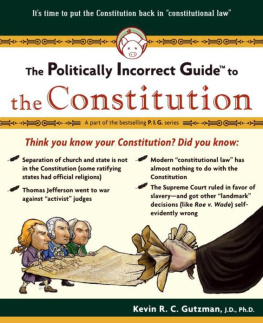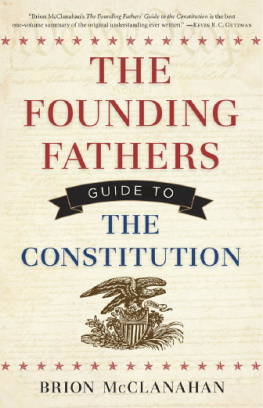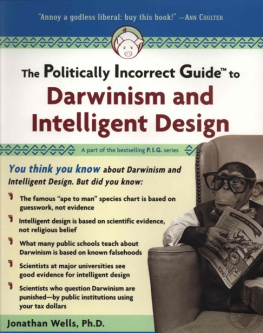Kevin R. C. Gutzman, J.D., Ph.D.





To Lorie, Who makes all things new again, and everything seem possible.
CONTENTS
Xi
Chapter 1: 1
The trouble begins ...
"If this be treason, make the most of it"
Jefferson stakes out America's rights
Jefferson's view of the British Empire: A federation of independent states
Gunsmoke-and fear of domestic tyranny
A state is a state is a...country
Chapter 2: 15
A constitution for the "United States"
Reforming the Confederation
A vision of national government: The Virginia Plan
Monarchists and nationalists and federalists-oh my!
Chapter 3: 29
A rocky road
Federalists battle Republicans over the Bill of Rights
It all comes down to Virginia
But what about The Federalist?
The question of sovereignty: Never really explained
Who ratified the Constitution: "The American people" or the sovereign states?
Chapter 4: 49
Judging the judges
The Court's first steps
The Eleventh Amendment: Protecting the states from the Supreme Court
Finally, a Bill of Rights!
The Washington factor
The trouble with France
Washington crusades for a whiskey tax
Jay's Treaty sparks controversy
Breaking the law is ... against the law
The Federalists' secret weapon: Judges
Jefferson and Madison argue for states' rights
Chapter 5: 75
High crimes and misdemeanors abound
Impeaching Justice Chase
The Supreme Court's march through Georgia (and Virginia)
Madison's banking flip-flops
"The wolf by the ear"
The Dartmouth review
The "great Lama of the mountains" vs. Marshall
Marshall finds the elastic in the Commerce Clause
Marshall nullifies the Declaration of Independence
State sovereignty? Never heard of it
Marshall finally gets one right
Chapter 6: 105
"The object and end of all government"
Taney tackles the Commerce and Contracts Clauses
The War for Southern Independence
All men are (not really) born free and equal
Dred Scott v. Sandford
Chapter 7: 121
Taney examines "the very definition of tyranny"
The Emancipation Proclamation
The "reconstruction" of the Constitution
Chapter 8: 139
"Instrumentalities of the state"? Sounds like socialism to me
Segregation is in the eye of the beholder
Supreme logic: A corporation is like a freed slave
It depends on your definition of "is"
The income tax was unconstitutional
Chapter 9: 155
Uncle Sam wants YOU!
Can you put that protest on hold until after the war?
The political platform of the Supreme Court: Pro-war, pro-child labor
The Supreme Court vs. the Roosevelt Democrats
Chapter 10: 167
"Updating" the framers
How the Constitution got "incorporated" rather than interpreted
How the Ku Klux Klan separated church from state
The Supreme Court vs. Christianity
Chapter 11: 185
The "inarticulate roars" of the Court
Freedom of pornography
The Supremes and criminal law
Cruel and unusual punishment
Brown v. Board of Education and its offspring
The civil rights legislation of the 1960s
Chapter 12: 201
From Affirmative Action to Sodomy
Affirmative action
Sex discrimination and the Fourteenth Amendment
The Supreme Court and "privacy"
The Supreme Court's electoral interventions
Appendices
INTRODUCTION
 ew subjects in American life are so thoroughly mystified, so completely surrounded by a myth of incomprehensibility, as the United States Constitution. From its earliest days, its exponentschiefly lawyers and judges, but with a helping of other politicians, journalists, and authors of various kinds thrown in-have trained the people at large to believe that only the few, the specially trained "elite," can understand it. If court rulings "interpreting" the Constitution defy common sense, well, that must be because common sense is so ... common.
ew subjects in American life are so thoroughly mystified, so completely surrounded by a myth of incomprehensibility, as the United States Constitution. From its earliest days, its exponentschiefly lawyers and judges, but with a helping of other politicians, journalists, and authors of various kinds thrown in-have trained the people at large to believe that only the few, the specially trained "elite," can understand it. If court rulings "interpreting" the Constitution defy common sense, well, that must be because common sense is so ... common.
In introductory lessons about America's federal government, students are introduced to the ideas of "republicanism," "limited government," and "federalism." Republicanism refers to a system in which policymakers are chosen through popular elections. Limited government and federalism are simply two sides of the same coin. They are different ways of understanding a system in which the states came first, delegated some carefully enumerated powers to a central government, and retained the rest for themselves.
But in what sense is our federal government limited? What remains of the idea that power over almost all significant issues is retained by the states? Why is it, in other words, that issues such as homosexual sodomy, abortion, and affirmative action-not to mention prayer in schools and the outcome of the 2000 presidential election in Florida-are decided by federal judges? What ever happened to republicanism, limited government, and federalism?
In recent decades, numerous judges-and particularly the Platonic guardians on the Supreme Court-have undertaken to use the Constitution as a blank check allowing them to write into American law their own ideas of "the evolving standards of decency that mark the progress of a maturing society," as Chief Justice Earl Warren put it in Trop v. Dulles (1958). Note the allusion to Darwin's theory of evolution here: if the judges' conceptions of decency differ from those of all their predecessors, then today's judges must be superior to their predecessors, because they have "evolved" within their "maturing" society. And of course, if the judges' ideas differ from those of the majority of the electorate, that only shows how much further the judges have evolved and how superior they really are.
This is not to say that every federal judge, or every judge on the Supreme Court, fancies himself a Platonic guardian. But it is to say that judges face few constraints on foisting their own views on the people as "constitutional law." Yet for a judge today disinclined to legislate "constitutional law," the obstacles to self-restraint are formidable. First, he will have to deal with the criticism, and, if he is consistent, eventually with the derision of the media, of politicians, and of legal academics. Second, and perhaps more important, he will have to escape from the mode of thought inculcated in him by his legal education.






![Blackstone Audio Inc. - The politically incorrect guide to the presidents: [from Wilson to Obama]](/uploads/posts/book/167736/thumbs/blackstone-audio-inc-the-politically-incorrect.jpg)









 ew subjects in American life are so thoroughly mystified, so completely surrounded by a myth of incomprehensibility, as the United States Constitution. From its earliest days, its exponentschiefly lawyers and judges, but with a helping of other politicians, journalists, and authors of various kinds thrown in-have trained the people at large to believe that only the few, the specially trained "elite," can understand it. If court rulings "interpreting" the Constitution defy common sense, well, that must be because common sense is so ... common.
ew subjects in American life are so thoroughly mystified, so completely surrounded by a myth of incomprehensibility, as the United States Constitution. From its earliest days, its exponentschiefly lawyers and judges, but with a helping of other politicians, journalists, and authors of various kinds thrown in-have trained the people at large to believe that only the few, the specially trained "elite," can understand it. If court rulings "interpreting" the Constitution defy common sense, well, that must be because common sense is so ... common.